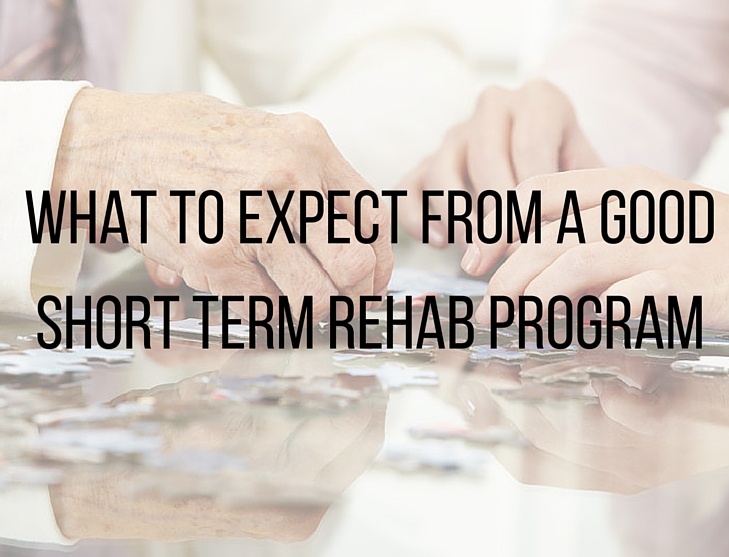
If an elderly loved one has recently suffered a stroke or heart attack or recently undergone heart surgery or a procedure such as an angioplasty or pacemaker implant, the next step in her recovery process is a short term rehab program. And as primary caregiver, you probably have more than a few questions about what you can expect over the coming months.
The primary goal of cardiac and stroke rehabilitation programs is to return an elderly patient to the highest level of independent functioning possible in the shortest amount of time. If you’ve chosen a rehab program certified by the Commission on Accreditation of Healthcare Organizations (CARF) and the Joint Commission, your loved one’s team will be committed to tailoring a treatment plan specific to not only your senior’s health condition and risks, but also to her temperament and lifestyle. What else can you and your loved one expect on the road to recovery ahead?
Cardiac Rehabilitation Program Components
Short term cardiac rehab is typically built around a physical activity program, often conducted in a group setting, that is aimed at safely helping an older adult regain strength and stamina.
If you’ve found a program certified by the American Association of Cardiovascular & Pulmonary Rehabilitation, a medical evaluation will determine your loved one’s specific needs and limitations, and a doctor-supervised stress test will dictate the exercise program’s guidelines.
In these programs, physical therapists or exercise physiologists monitor participants’ heart rate and blood pressure until participants learn to monitor themselves and adjust exercise intensity levels accordingly. Seniors work their way toward intense aerobic activity as endurance builds, with the ultimate goal of implementing regular physical activity into daily life.
Seniors also receive educational counseling to help them understand their condition and develop effective self-management skills.
Smoking cessation programs are implemented if appropriate. Education is provided for keeping high blood pressure and cholesterol levels in a healthy range. And participants work with a dietician to create a healthy eating or weight loss plan with tips for shopping and heart-healthy cooking methods.
Your loved one may also receive psychological or emotional support to cope with the stress or depression common during recovery. Peer group support and family counseling services are also integrated into the treatment plan.
The goal of cardiac short term rehab is to provide support and training to help older adults return to normal activities with the confidence required to successfully manage their condition.
Stroke Rehabilitation Services
If you choose a rehab facility with a stroke-specific accreditation from the non-profit Commission on Accreditation of Rehabilitation Facilities, you’re likely to see a more successful outcome.
Post-stroke rehabilitation is often essential for a return to independent living as the lingering effects of a stroke may require relearning basic skills that have been lost. The goal of stroke rehabilitation is to build a senior’s strength, capability, and confidence—which requires a large, integrated team of professionals.
-
Rehabilitation Nurse. Helps seniors manage any disabilities related caused by a stroke and underlying health problems, such as high blood pressure, high cholesterol, or diabetes.
-
Physical Therapist. Suggests exercises to improve balance and strengthen the muscles used for movement. A PT helps with mobility skills, such as walking with a cane, using a walker, or propelling a wheelchair.
-
Occupational Therapist. Assists with self-care (bathing, grooming, dressing, toileting) and other necessary daily tasks like cooking, operating a vehicle or writing.
-
Dietician. Teaches stroke survivors healthy meal planning and tailors diets for special needs, such as low salt, low calorie, and low fat.
-
Speech-Language Pathologist. Helps older adults relearn talking, swallowing, and reading skills.
-
Audiologist. Helps to determine the extent of hearing loss present if the stroke has affected the temporal lobes.
-
Neuropsychologist. Diagnoses and treats changes to cognitive skills, including problem solving, memory, and behavior.
-
Psychiatrist/Psychologist. Counsels stroke survivors dealing with depression or anxiety and helps them relearn social skills if needed.
Your loved one may need six weeks, six months, or even longer to reach her recovery goals. While many cardiac and stroke short term rehab programs last for three months, some seniors may need years of ongoing support to manage their health conditions and maintain healthy lifestyle habits.












